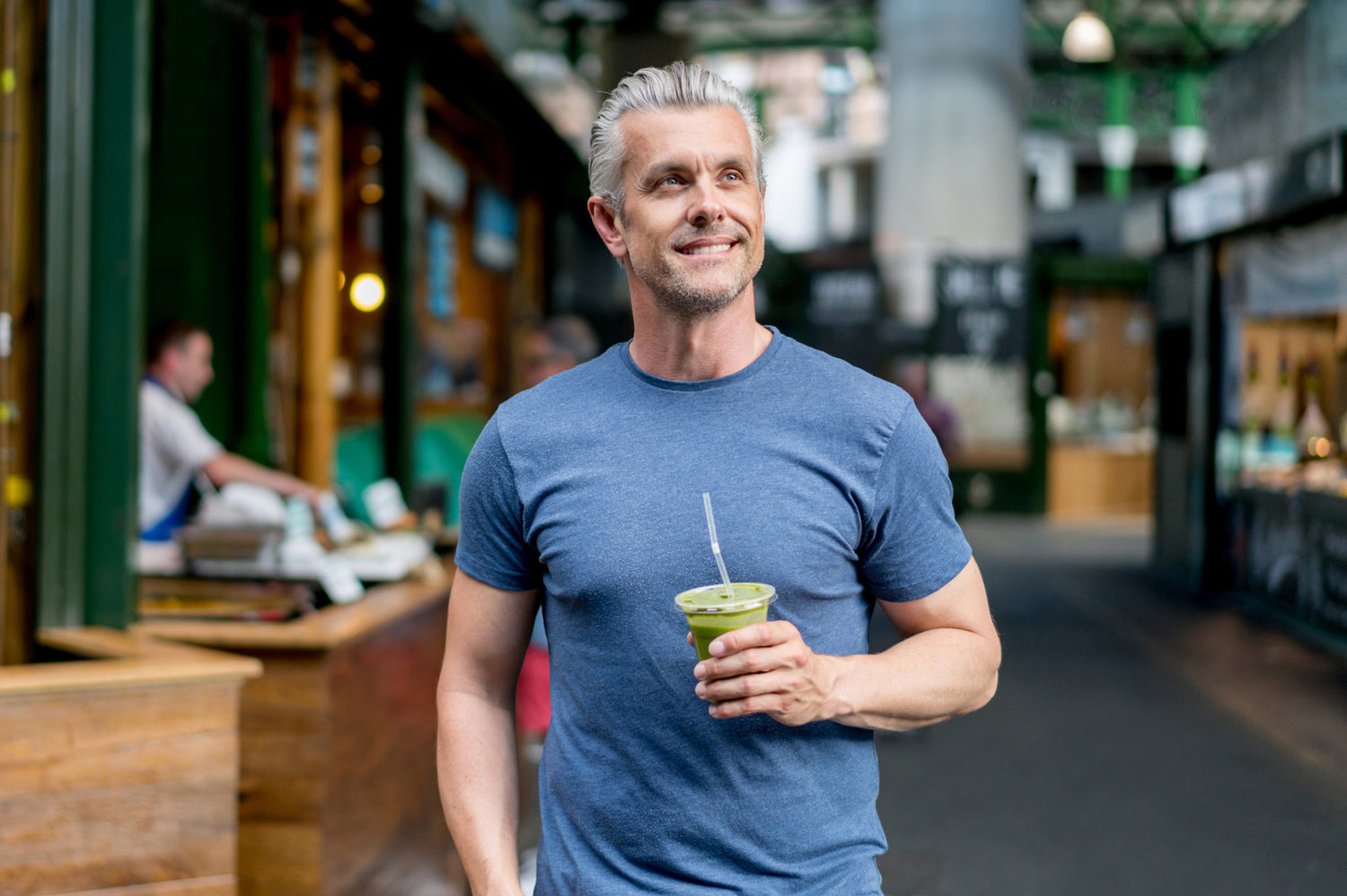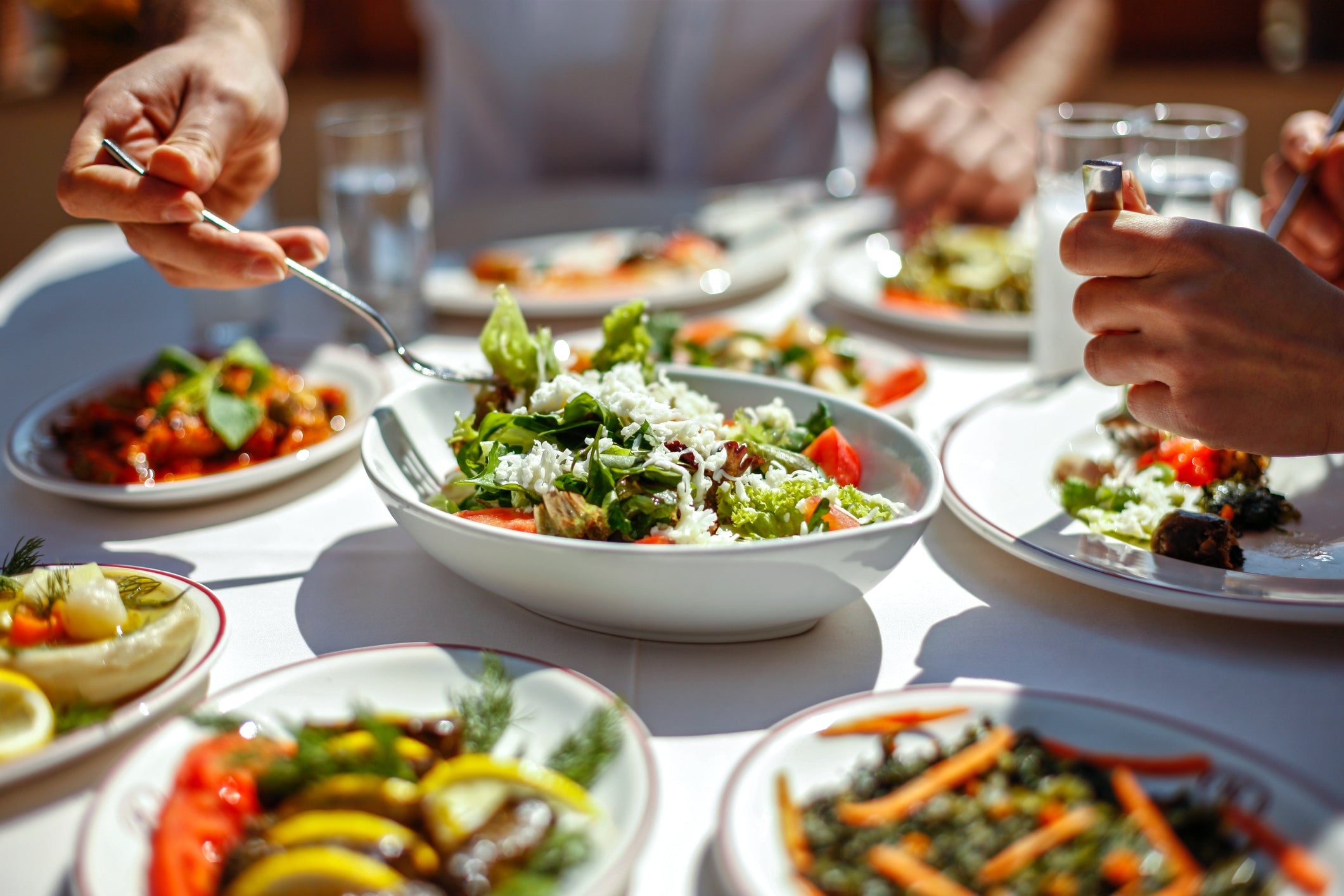Don't wait until it's too late - learn how to improve your lifestyle to avoid developing diseases! A healthy diet for men should be tailored to your individual needs, body weight and height, health condition, and level of physical and professional activity.
The menu should be based on regular meals, based on fresh, unprocessed products. It is also very important to consume the right amount of fluids, especially water. A properly selected diet gives more energy, improves concentration, immunity and also reduces the risk of many diseases, including: circulatory system diseases, cancers, or type 2 diabetes, it also has a positive effect on well-being and... libido.
Remember to include the following in your daily diet:
- vegetables and fruits – especially those that are a source of antioxidants: red peppers, dark green vegetables, avocado, pomegranate, berries, citrus fruits and bananas ;
- cereal products – as minimally processed as possible – groats, rice, pasta and whole grain bread, which are rich in fibre and minerals,
- products that are a source of protein – legumes, dairy products, eggs, fish and seafood, meat (in small quantities), as well as nuts and seeds,
- fats – vegetable, especially olive oil and rapeseed oil etc.
- choose unsaturated fats such as vegetable oils, nuts and seeds, instead of saturated fats, especially animal fats such as lard, butter and fatty meats,
- spices – black pepper, cayenne pepper, cinnamon, ginger, turmeric, cardamom, paprika, chili – improving metabolism and immunity,
- coffee, green and red tea and dark chocolate, which contain important antioxidants!
Because men have more muscle and are usually larger than women, they need more calories throughout the day. Moderately active men probably need 2,200 to 2,800 calories per day. However, remember that your energy needs depend on your height, weight, and activity level.
To prevent disease and maintain good energy levels, men should eat whole grains such as whole grain bread, pasta, cereals, brown rice, oats, barley, beans, lentils, fruits and vegetables. These foods are rich in fiber, which helps keep you feeling fuller for longer, while also reducing the risk of certain cancers, including prostate and colon cancer.
Remember that meat is not the only source of protein. Eat a variety of protein foods, including seafood and plant-based foods such as beans, peas and soy products, as well as grains and nuts – in addition to good quality protein, these products contain selenium and zinc – minerals that are essential for testosterone synthesis and are responsible for good sperm quality, and therefore fertility and libido levels.
Limit saturated fats from high-fat meats, full-fat dairy products, and fried foods. Instead, choose foods with unsaturated, heart-healthy fats like olive oil, canola oil, nuts, seeds, and avocados.
Diet and Prostate Cancer
More and more research indicates that diet can help prevent the development of prostate cancer. Even the best diet will not provide full health if we skip exercise. Moderate (overtraining has a very negative effect!), but regularly performed physical activity brings huge benefits to the body. It helps maintain a healthy figure, strengthens muscles, improves the body's immunity, and thus reduces the risk of cardiovascular diseases, as well as depression. It is also a proven element of cancer prevention. Exercise increases intellectual efficiency - oxygenated, it works more efficiently and effectively, it also affects the secretion of endorphins - the hormone of happiness, thanks to which we can feel relief, happiness, and also feel less pain after training.
Take care of yourself, check your health and start working on the best state of your life – you can live stronger!



